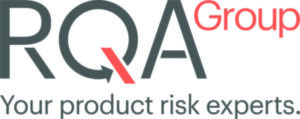The FDA Final Rule on Additional Traceability Records for Certain Foods is effective on 20 January 2023.
We’ve asked our partners, RQA to summarize this important new legislation for our existing and potential clients in the food supply chain. What are its origins? What is the Food Traceability List? Which products does the rule apply to? What are the additional traceability requirements? When must you be compliant and what are the consequences of non-compliance? Finally, read how Perigon and RQA can assist you with compliance.
What are the origins?
Due to a rising number of food-related incidents which were deemed to be largely preventable, action was taken by Congress which brought to life the federal Food Safety Modernization Act (FMSA) 2. This act was passed in 2011 aiming to shift the focus to preventing incidents before they occur from investigating the cause after the effect. This new rule on traceability is a continuation of the implementation of FSMA and it defines additional requirements on top of those previously established by the FDA. It is part of the FDA’s New Era of Smarter Food Safety Activities. They say it is “designed to facilitate faster identification and rapid removal of potentially contaminated food from the market, resulting in fewer foodborne illnesses and/or deaths.”
What is the Food Traceability List (FTL)?
The list of products that the rule applies to are on the FTL which has been compiled using a risk-ranking model. They used criteria such as: Frequency of outbreaks and occurrences of illnesses; Severity of illness; Likelihood of contamination; The potential for pathogen growth, with consideration of shelf life; Manufacturing process contamination probability and industry-wide intervention; Consumption rate and amount consumed; Cost of illness.

What products are on the FTL?
The list can be found on the FDA website but in summary it now includes:
- Cheeses, other than hard cheeses
- Shell Eggs
- Nut Butters
- Fresh Cucumbers
- Fresh Herbs
- Leafy Greens (Fresh & Fresh-Cut)
- Fresh Melons
- Fresh Peppers
- Fresh Sprouts
- Fresh Tomatoes
- Fresh Tropical Tree Fruits
- Fresh-Cut Fruits
- Vegetables other than leafy greens (fresh-cut)
- Finfish (fish and frozen)
- Smoked Finfish (refrigerated and Frozen)
- Crustaceans (fresh and frozen)
- Molluscan shellfish, bivalves (fresh and frozen)
- Ready-to-eat deli salads (refrigerated)
Generally, products that are exempt are those which have undergone a “kill step” e.g. thermal canning or pasteurization as well as those that are covered in other regulations where this traceability data may already exist. Additions to the list may occur as new information is gained, compliance will be mandated two years after an addition and deletions become effective immediately upon a removal.
Key point:
Do a thorough check of the full detail of the rule to see if it applies to some or all of your products. There are some subtle aspects to consider, for example “Ready-to-eat deli salads (refrigerated)” is on the FTL, this includes all types of refrigerated ready-to-eat deli salads. Examples include, but are not limited to, egg salad, potato salad, pasta salad, and seafood salad. Does not include meat salads.
What are the additional traceability requirements?
For products on the FTL, the FDA specify Key Data Elements (KDEs) linked with specific Critical Tracking Events (CTEs).
KDEs include location of harvest and subsequent recipient, quantity, dates, document reference plus others. There is also the requirement for all parties involved to have a Traceability Plan.
CTEs include: harvesting, cooling, initial packing, receiving, transforming, and shipping.
Further to collecting this specific data and maintaining records, the rule stipulates that the subject company must provide information to the FDA within 24 hours upon their request (or within some reasonable time to which the FDA has agreed).
This rule applies industry best practices and aims to harmonize standards covering domestic as well as foreign businesses producing food for US markets. The important point to note is that the focus is to be along the entire length of the food chain, from ‘farm to fork’ rather than in isolation.
Consequences of non-compliance and key dates
Full details on how the rule will be implemented and enforced are still being determined. It is likely that the FDA will initially give businesses the opportunity to take voluntary corrective action. They may issue advisory action and warning letters but if necessary the Federal government may bring civil action or criminal action in Federal court.
This rule is effective from 20th January 2023 and should start to be implemented into systems as soon as possible by companies subject to the rule. The formal compliance date for all affected parties to these recordkeeping requirements is Tuesday, January 20, 2026.
• A customised briefing on the rule including:
– Timing and who must comply, who is excluded
– Food Traceability List (FTL) and if your products are involved
– Record keeping requirements: key data elements (KDEs) and critical tracking events (CTEs)
– Elements of the Traceability Plan
• Traceability Plan development to meet rule requirements
• Gap analysis: current lot trace capability and identification of needs to comply with new rule



